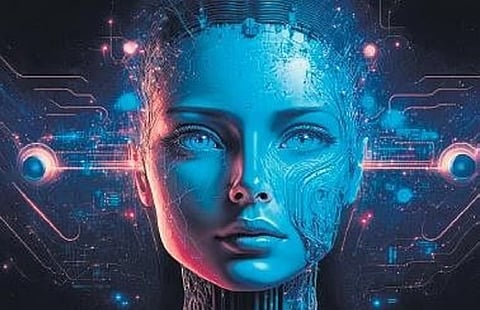

HYDERABAD : Artificial Intelligence (AI) is gradually making its way in the healthcare sector, leading to a dynamic transformation in the traditional approach of research, diagnosis, pharmaceutical development, data analysis, public health, clinical research, surveillance, health-care administration and other crucial domains of the healthcare sector.
While the World Health Organization (WHO) has identified the significant role of AI in healthcare, the organisation in its the latest guidance titled ‘Ethics and governance of artificial intelligence for health’, has recognised the benefits and risks in various uses of large multi-modal modals (LMM), a type of AI, in health care.
According to the guidance, in case of diagnosis and clinical care, the WHO identified potential or proposed benefits such as assistance in managing complex cases and review of routine diagnoses, reducing the communication workload of health-care providers, providing novel insights and reports from various unstructured forms of health data, among others.
Prof Raja Rao Tripuraneni, chief advisor, VisionLabs AI Academy, computer scientist and AI expert elaborated on the scope of AI in multiple specialties such as cardiology, nephrology, gastroenterology, pulmonology, radiology in terms of diagnosis and treatment.
“AI can be employed for disease diagnosis, and it can essentially play a crucial role in mass screenings. The most important usability of AI is that knowledge from experts from any domain can be translated into information using AI-based technologies. In addition, humans cannot predict huge data, which AI is capable of doing through machine learning, deep learning, data processing, algorithms, computational intelligence and developing expert systems”, Prof Rao said.
The experts however acknowledged the fact that the AI technology was nascent in this sector and that the full potential and risks of the technology were yet to be determined.
Experts also underlined that human intelligence could not be replaced by any technology and that any machine could not overpower the potential of the human mind.
Dr D Dwarkanath Reddy, chairman, Vision 2030 on Health FTCCI, speaking to TNIE said, “ AI is a new technology and it has its own role in the healthcare industry and we are witnessing a significant role of AI in new drugs, treatments and therapies. Robotics and pharmaceutical domains are evolving at a fast pace and the technology will enable more development in the medical and drug industry. However the technology has its own limitations and drawbacks and most importantly, it cannot replace human intelligence and wisdom by any means.”